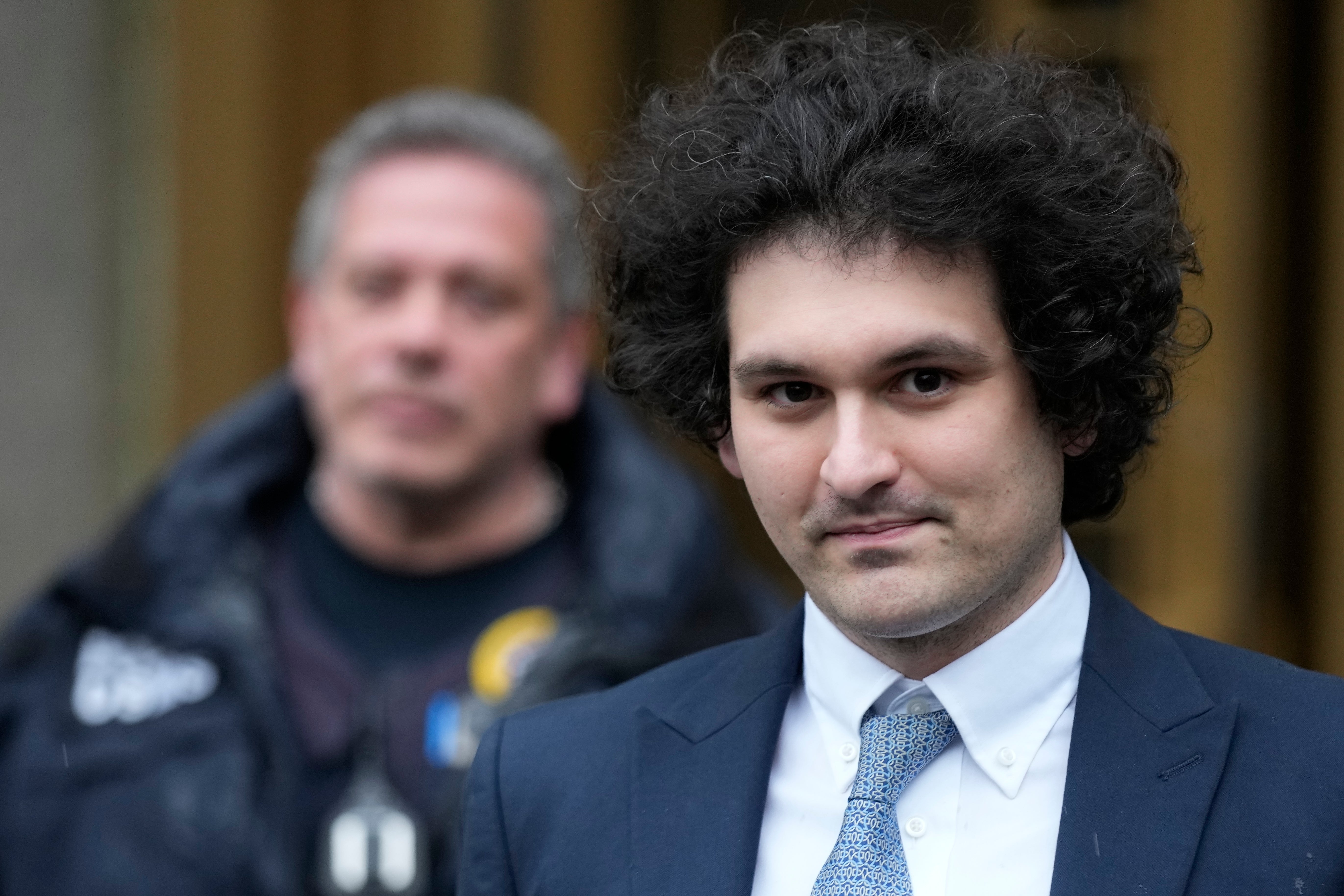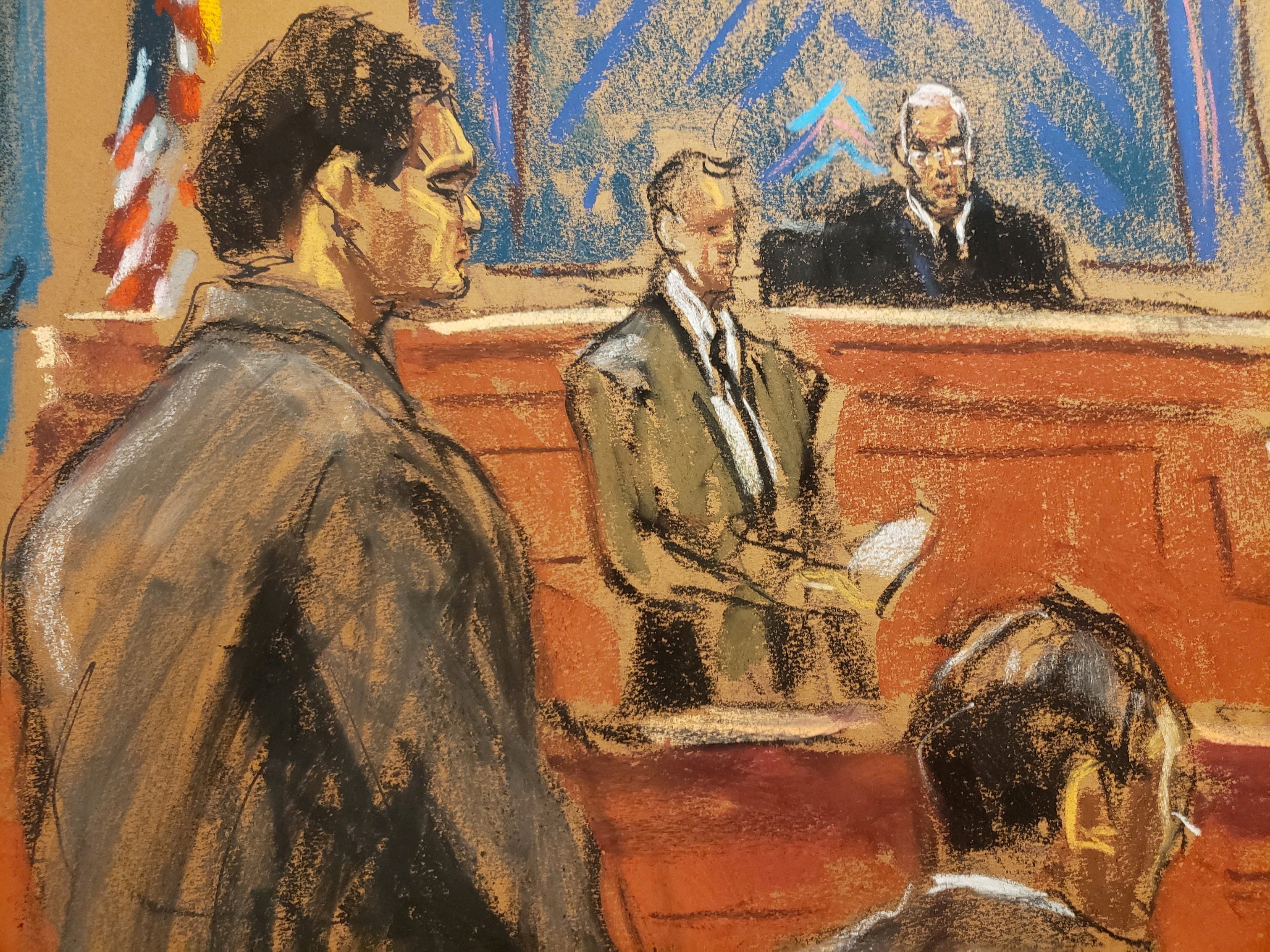Crypto king Sam Bankman-Fried is facing jail – but how did he get away with it for so long?
Just a year ago, he was on top of the world. But Sam Bankman-Fried now faces a maximum 110-year jail term for orchestrating one of the biggest financial frauds in American history, writes Chris Blackhurst. This is what we must learn from his demise


After the verdicts were announced in the trial of Sam Bankman-Fried, US attorney Damian Williams said he carried out a fraud “designed to make him the king of crypto”. While “the cryptocurrency industry might be new... this kind of corruption is as old as time”.
Just one year ago, the tousle-haired, cargo-short-wearing Bankman-Fried truly was on top of the world. His company, FTX, was worth billions of dollars; he was well on his way towards being among the richest people on the planet.
The Super Bowl, White House, Capitol Hill, Hollywood, Silicon Valley – they all fawned over him. He was scruffy, strange in manner, socially awkward – traits that only pointed to his genius.
Ideas spilled out of him. He wasn’t out to make money for himself, he insisted, while splashing it on all manner of luxury baubles – he espoused “effective altruism”, helping others less fortunate.

Celebrities, politicians, investors, fellow tech tycoons – they lined up in their droves to get a piece of “SBF”. He was typical of the breed. Coincidentally, on the very day Bankman-Fried was found guilty, the British prime minister conducted a bizarre, cringe-making “fireside chat” with Elon Musk, tech’s ultimate poster child. There was Rishi Sunak in the midst of wars in Israel and Ukraine, beset with economic and climate change woes, posing inane, gentle questions to someone he so clearly worshipped. It was characteristic of how these new commercial gods are received; and suggested that Sunak’s heart lay on America’s West Coast, not in Downing Street or his Yorkshire constituency.
Bankman-Fried was the pin-up of crypto. Yet, he now faces the prospect of receiving a 110-year jail term for orchestrating what prosecutors hailed as “one of the biggest financial frauds in American history” on the FTX exchange’s customers and investors, as well as lenders to his affiliated hedge fund Alameda Research. They both went down.
FTX had an $8bn (£6.45bn) hole in its balance sheet, millions lost their money.
John Ray, an insolvency specialist who took charge of FTX when it filed for bankruptcy, was scathing, saying the “complete absence of trustworthy financial information” was worse than Enron, a previous collapse he administered.
To many, SBF’s conviction confirms everything that is wrong with crypto. It attracts the wrong sorts, who revel in operating in an alternative universe, devoid of the furniture of the old economy with its petty rules and regulations. But on the news, the crypto markets held relatively firm, dipping only slightly when the jury returned its findings.

Bitcoin is feeling its way after almost being wiped out last year, running up losses of $1.2 trillion (£969bn). The point is, though that it’s still there, just. Likewise, the FTX debacle has not proved terminal. Instead, some insiders are arguing FTX should be treated, not as the end but as a catalyst for change, that their industry needs a regulatory, enforceable framework. The keenest advocates go further and say SBF’s demise illustrates that no one is beyond the law, not even in crypto – hitherto regarded as akin to the Wild West.
That is extreme and takes no account of those who saw their money swallowed. Suggesting their suffering is some sort of collateral damage and they should grin and bear it, while Bankman-Fried heads to prison, is not good enough.
No, what the episode highlights is a requirement for proper controls and policing. What should accompany these new strictures is a shift in attitude. For too long, the tech wizards have been indulged. No one expects them to make profits at first, but, equally, they should stop attempting to mask those deficits with stories of their own brilliance, normally involving difficulty in making friends, dropping out of school but going on to seek to save mankind.
They must be held to account, to disclose exactly how the business is progressing. They should be made to deliver less airy-fairy babble and more hard, checkable facts. Investors ought to instruct their fund managers to apply the same standards as they would to any business.
FTX was not short of having some of the smartest, most sophisticated backers, including New Enterprise Associates, SoftBank, Sequoia Capital and BlackRock. They put in a collective $2bn (£1.6bn). As was revealed in the case, a Sequoia partner wrote, ahead of the firm investing $214m, “I LOVE THIS FOUNDER”. Soon, Sequoia was writing down its investment to zero.
When it came to pumping cash into SBF and his ideas, they suspended their adherence to the normal checks and balances. That must cease: a loss is a loss after all; the money (and the subsequent pain) is the same, whether it goes into a traditional business or a digital one.
Injecting tonnes of cash into a venture devised by a self-confessed geek who, despite being a nerd, is able to spin a yarn and promise oodles of jam tomorrow, should in future flash warning signals. It has not to date, of course. SBF was not the first to go down this path; there have been other, similar, cases although not so egregious or spectacular.
Not understanding how the technology works but being spun a tale instead is not acceptable. It’s to be hoped that FTX acts as a lesson, a wake-up call. Here’s hoping. Equally, though the City adage is that if something is too good to be true that’s because it is. The saying has remained steadfast down the years. It’s trotted out on every occasion there is a failure such as this; heads nod and reform is promised; and the next time there are always plenty of takers searching for the new thing. I’d like to say this is a turning point. But sadly, human nature being what it is, there will be other people like Sam Bankman-Fried.
Join our commenting forum
Join thought-provoking conversations, follow other Independent readers and see their replies
Comments
Bookmark popover
Removed from bookmarks